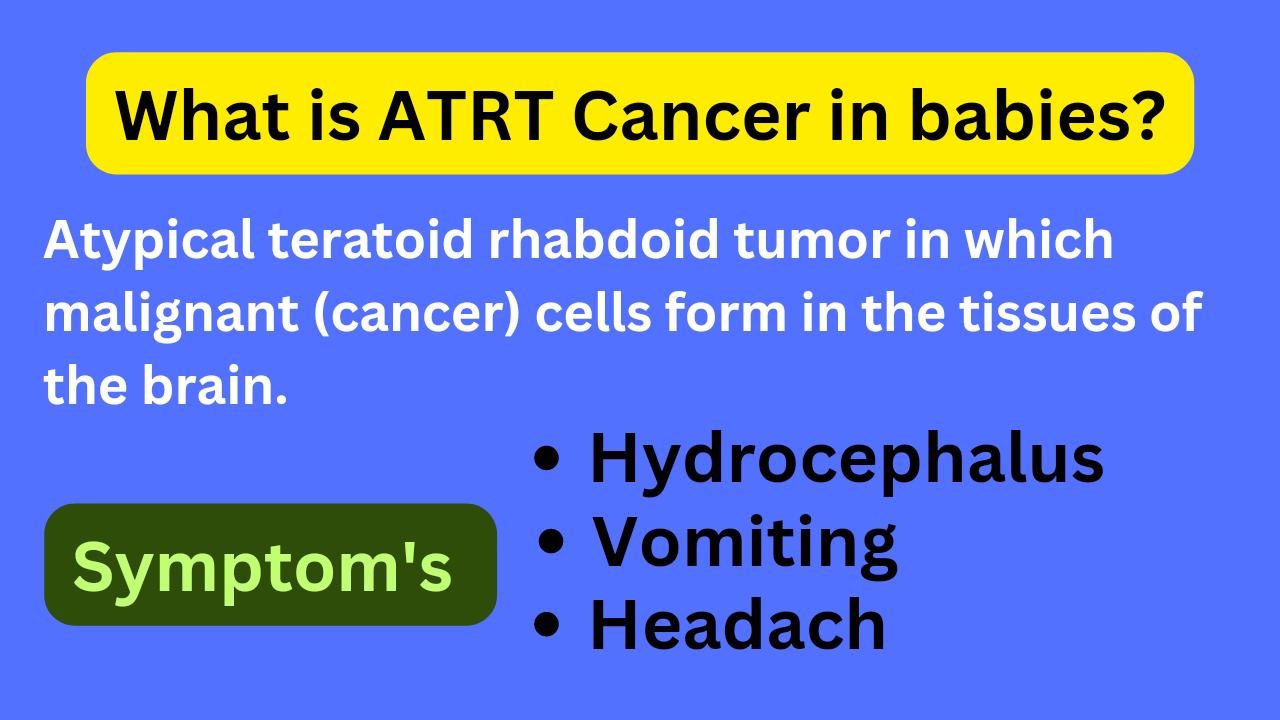The ATRT is a short-term Atypical Teratoid Rhabdoid Tumor. It is a rare and aggressive form of cancer that primarily affects the central nervous system, particularly the brain and spinal cord.
It is most commonly diagnosed in children under the age of three, but it can also occur in older children and adults.
ATRT is characterized by the presence of abnormal cells called rhabdoid cells. These cells have a unique appearance under the microscope and are associated with aggressive tumor growth and resistance to standard cancer treatments.
ATRT can occur in different parts of the central nervous system, including the brain, spinal cord, and occasionally other organs.
ATRT cancer symptoms in babies
- Increased head size: A rapidly growing tumor in the brain can lead to an increase in the size of the baby’s head, often accompanied by bulging fontanelles (the soft spots on the baby’s skull).
- Irritability and fussiness: Babies with ATRT may exhibit increased irritability, fussiness, or excessive crying, which can be a result of the tumor’s impact on the brain.
- Feeding difficulties: A baby with ATRT may have difficulty feeding, including problems with sucking, swallowing, or maintaining a regular feeding pattern.
- Changes in sleep patterns: Disturbances in sleep patterns, such as excessive sleepiness or difficulty in sleeping, may be observed in infants with ATRT.
- Developmental delays: ATRT can affect the development of a baby, leading to delays in achieving milestones such as sitting, crawling, or walking.
- Changes in eye movement: In some cases, ATRT may cause abnormal eye movements or changes in vision. Strabismus (crossed eyes) or nystagmus (involuntary eye movements) can be observed.
- Seizures: Infants with ATRT may experience seizures, which can manifest as involuntary movements, jerking, or staring spells.
What is the cause of atrt cancer in babies?
The exact cause of ATRT is not yet fully understood. However, some cases have been linked to mutations in a gene called SMARCB1 (also known as INI1 or hSNF5).
This SMARCB1 is involved in regulating cell growth and division. In cases where there is a genetic predisposition, ATRT may occur as part of a hereditary cancer syndrome called rhabdoid tumor predisposition syndrome.
What is the mortality rate in ATRT patients?
ATRT is associated with a high mortality rate, particularly in infants and young children. The overall survival rate for ATRT is relatively low, with studies reporting rates ranging from around 20% to 70%.
Here’s the video of “What is atrt cancer symptoms in babies”
